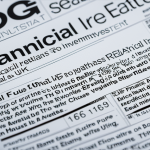Legal frameworks governing patient data privacy
Understanding the legal frameworks governing patient data privacy in the UK is essential for healthcare providers to ensure compliance and protect individuals’ sensitive information. Two primary laws set the foundation: the UK GDPR and the Data Protection Act 2018.
The UK GDPR, derived from the EU’s General Data Protection Regulation but tailored specifically for the UK context, governs the processing of all personal data, with heightened protections for sensitive categories like health data. It mandates that patient data must be processed lawfully, transparently, and for specific, legitimate purposes. Healthcare organizations must also demonstrate accountability and implement data minimisation strategies, meaning they only collect and use data that is absolutely necessary.
In parallel : How Can Lifestyle Choices Impact Healthcare Trends in the UK?
The Data Protection Act 2018 complements UK GDPR by providing detailed provisions relevant to the healthcare sector. It outlines specific conditions under which patient data can be processed and reinforces principles such as fairness and accuracy. Together, these laws require that healthcare providers obtain explicit consent where applicable, ensure data accuracy, and allow patients rights to access and rectify their health records.
Notably, the UK GDPR and the Data Protection Act 2018 are closely aligned with earlier EU regulations, maintaining consistency in data protection standards post-Brexit. This alignment helps to ensure that patient data privacy remains robust and adaptable amid evolving technological and legal landscapes.
This might interest you : How is the UK’s Approach to Public Health Evolving in the Face of New Challenges?
In summary, compliance with these key patient data laws in the UK demands rigorous attention to safeguarding personal health information, adherence to lawful processing criteria, and respect for patient autonomy through transparent practices.
NHS standards and guidelines for data protection
The NHS upholds stringent NHS data protection standards to safeguard patient information, implemented through the NHS Data Security and Protection Toolkit. This toolkit sets out clear requirements that NHS organisations must meet to ensure compliance with patient data law UK, including regular assessments and evidence of secure data handling practices. By adhering to this toolkit, NHS bodies demonstrate accountability and robust protection measures tailored for healthcare environments.
Central to the NHS approach is the duty of confidentiality, which legally binds healthcare staff to protect patient information. This duty ensures that personal health data is used solely for the purposes for which it was collected and shared only with appropriate consent or legal justification. Maintaining confidentiality supports patient trust and aligns with both the UK GDPR and the Data Protection Act 2018’s requirements for lawful and fair processing.
Information governance forms a core pillar of NHS data privacy policy. All NHS employees receive mandatory training on the handling of patient data, including secure storage, access controls, and proper information sharing protocols. This training reinforces compliance with patient data law UK and equips staff to manage data securely while respecting patients’ rights. In addition, NHS organisations implement policies addressing data minimisation and data quality to reduce risks of unauthorized access or inaccuracies.
In summary, the NHS combines the Data Security and Protection Toolkit, a strict duty of confidentiality, and comprehensive staff training to uphold high standards in NHS data protection and support the ethical, legal processing of sensitive health information.
Handling and processing of patient data
Managing patient data handling UK requires strict adherence to protocols for collecting, storing, and transferring sensitive health information. In healthcare settings, all processing healthcare data must comply with the patient data law UK, ensuring data is accurate, secure, and used only for its intended purpose. This encompasses medical records management, where records must be protected from unauthorized access but remain accessible to authorized staff for clinical use.
Data minimisation is a critical legal and practical mandate within patient data handling UK. It means healthcare providers collect only the minimum necessary data to deliver care and avoid excess information that could increase privacy risks. Similarly, strong access controls are implemented to restrict data visibility exclusively to individuals involved in patient care or processing operations, reducing opportunities for misuse.
When it comes to sharing patient data with third parties, explicit patient consent or lawful justification under the Data Protection Act 2018 and UK GDPR is mandatory. This principle safeguards patient autonomy and confidentiality while enabling data flows for purposes like referrals, research, or audit. Healthcare organisations must document such consents clearly and ensure third parties maintain equivalent data protection standards.
Overall, effective medical records management combines precise data handling protocols, minimisation principles, and consent controls to balance the efficient use of health data with respect for patient privacy and legal compliance.
Patient rights regarding health data
Understanding patient rights UK is crucial for empowering individuals to control their personal health information. One of the fundamental rights is the right to access health records, which enables patients to obtain copies of their medical records from NHS bodies or healthcare providers. This right is enshrined in the patient data law UK, primarily under the UK GDPR and Data Protection Act 2018, allowing patients to review data held about them and ensure its accuracy. Requests for access must usually be fulfilled within one calendar month, reflecting a commitment to transparency.
Patients also have the right to rectification, enabling them to request correction of any inaccurate or incomplete information in their health records. This right supports the quality and reliability of medical records management, ensuring that errors do not adversely affect diagnosis or treatment. If a patient identifies discrepancies, they can formally notify the data controller—the NHS or healthcare provider—who is obligated to address the issue promptly.
In addition, patients can invoke the right to deletion or erasure in specific circumstances, such as when data is no longer necessary for the original processing purpose. However, in healthcare contexts, this right is often balanced against legal and clinical requirements to retain data for medical or legal reasons, so deletion is not always straightforward.
Should patients have concerns about how their health data is being processed or if their rights are not respected, they can raise complaints with the relevant NHS trust or healthcare provider. If unresolved, issues may be escalated to the Information Commissioner’s Office (ICO) for investigation under patient data law UK guidelines.
By knowing and exercising these rights—access to health records, correcting NHS data, and understanding deletion rules—patients gain greater control over their health information, fostering trust and transparency within the healthcare system.
Legal frameworks governing patient data privacy
Patient data privacy in the UK is primarily governed by two legal pillars: the UK GDPR and the Data Protection Act 2018. These create a comprehensive patient data law UK framework that sets out clear obligations for healthcare providers.
The UK GDPR requires that personal health information be processed fairly, lawfully, and transparently. Healthcare providers must have a specific lawful basis for processing data, such as explicit patient consent or necessity for medical care. It also mandates principles like data minimisation, meaning only information strictly needed for healthcare delivery should be collected, processed, and stored.
The complementary Data Protection Act 2018 provides sector-specific rules clarifying how the UK GDPR applies in healthcare. It outlines conditions for processing sensitive health data, reinforces rights such as data access and rectification, and addresses special situations like research or public health needs under patient data law UK. Providers must ensure data accuracy and apply safeguards that protect patient confidentiality.
These two frameworks are aligned closely with prior EU regulations, ensuring continuity despite Brexit changes. This alignment helps maintain consistent standards for patient data privacy and facilitates international data exchanges where lawful. Providers must remain vigilant about ongoing legal updates to stay compliant.
Key legal requirements under these laws include lawful processing purpose, upholding patient rights, robust data security, and accountability measures such as documentation and impact assessments. Together, they establish the foundation for protecting sensitive health data within the UK’s healthcare system.
Legal frameworks governing patient data privacy
The UK GDPR and the Data Protection Act 2018 together establish the comprehensive foundation of patient data law UK, regulating how health information must be handled by healthcare providers. The UK GDPR sets strict criteria for lawful processing, requiring that personal health data be processed fairly, transparently, and solely for specified healthcare purposes. It mandates the principle of data minimisation, where only relevant and necessary information is collected and processed to reduce privacy risks.
The Data Protection Act 2018 complements the UK GDPR by providing specific healthcare-related provisions. It clarifies conditions under which sensitive health data can be processed, reinforcing obligations such as ensuring accuracy and applying adequate safeguards to protect confidentiality. For example, providers must document legal bases for processing and carry out Data Protection Impact Assessments when handling high-risk data scenarios, a key aspect of compliance with patient data law UK.
Alignment with earlier EU regulations remains crucial. Post-Brexit, the UK GDPR closely mirrors EU GDPR standards to maintain consistency and facilitate lawful data sharing across borders where appropriate. This regulatory continuity strengthens trust and legal certainty for NHS bodies and private healthcare providers operating within the UK.
Healthcare providers must continually monitor for updates in the UK GDPR and Data Protection Act 2018 to adapt policies and maintain compliance. Key legal requirements include maintaining transparency with patients, safeguarding data accuracy, respecting patient rights, and demonstrating accountability through documentation and security measures. These frameworks empower patients and ensure their sensitive health data is rigorously protected under current UK law.







